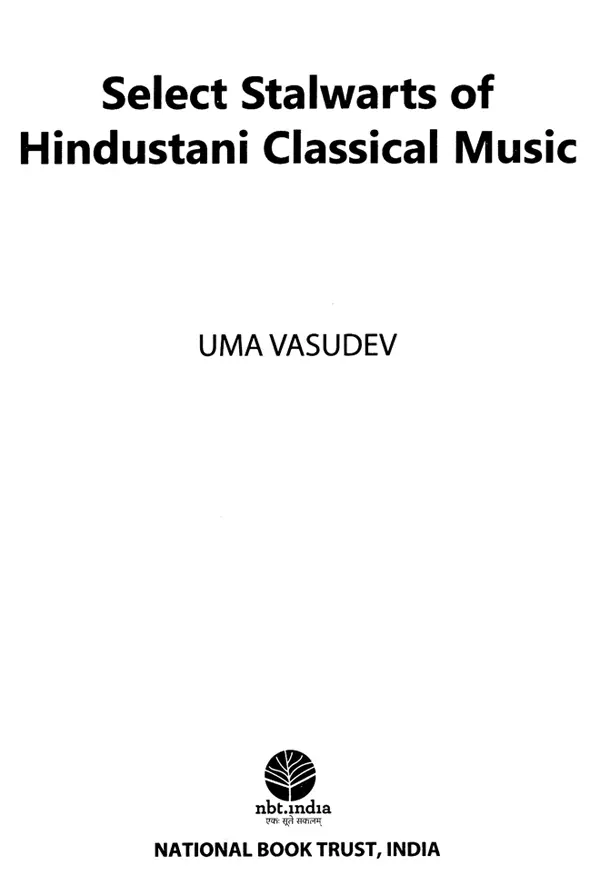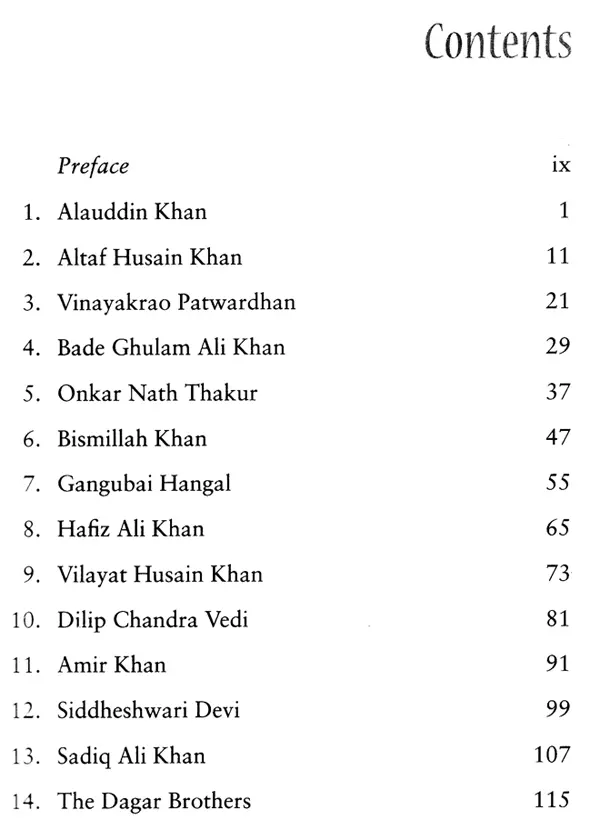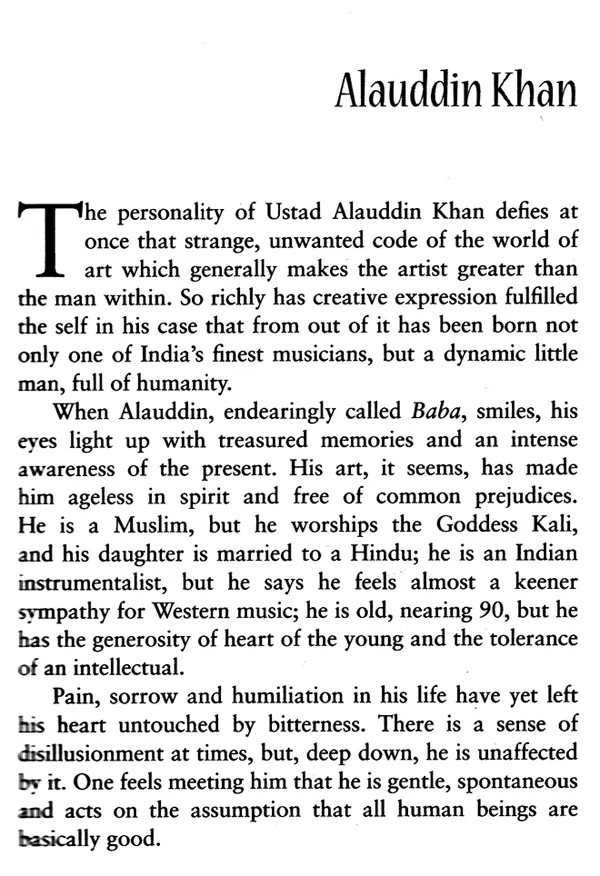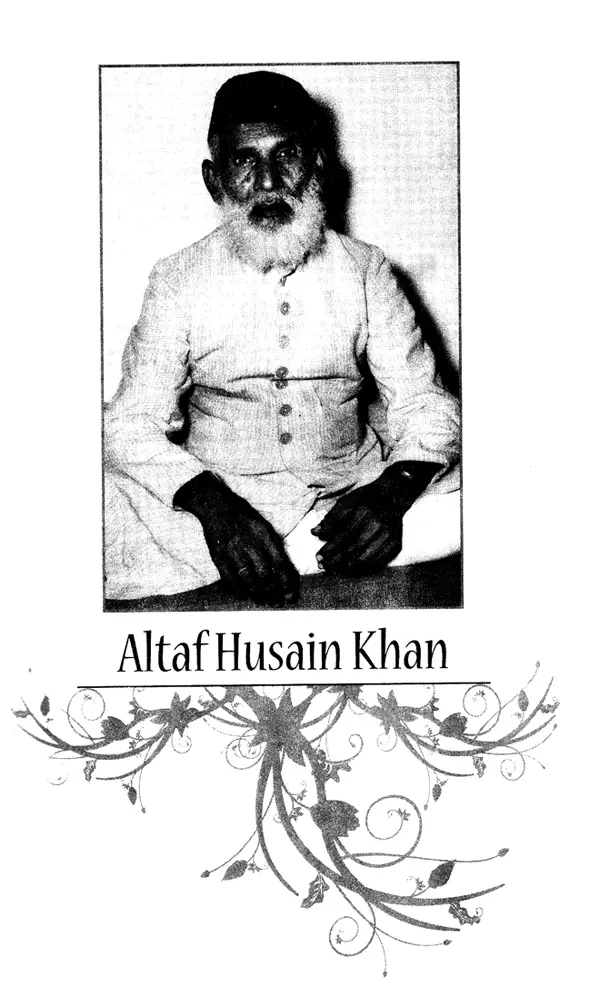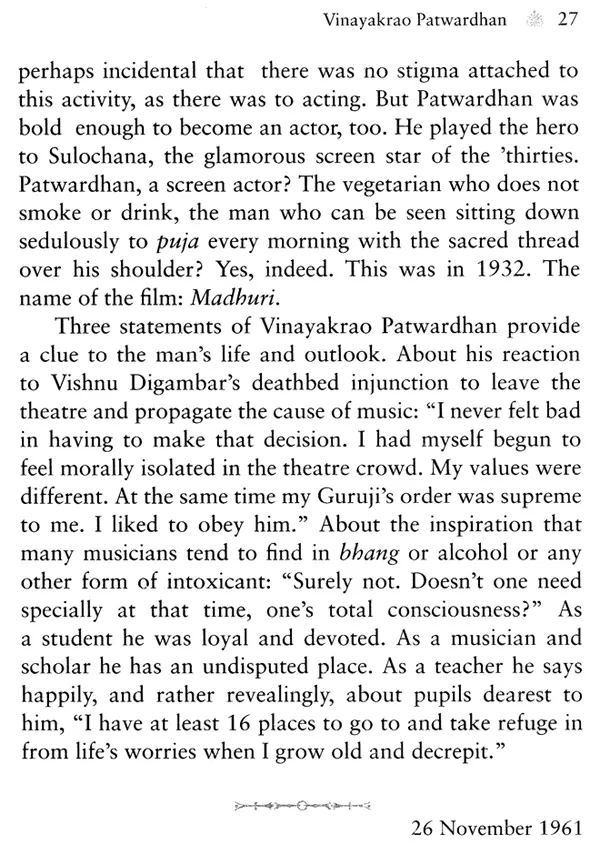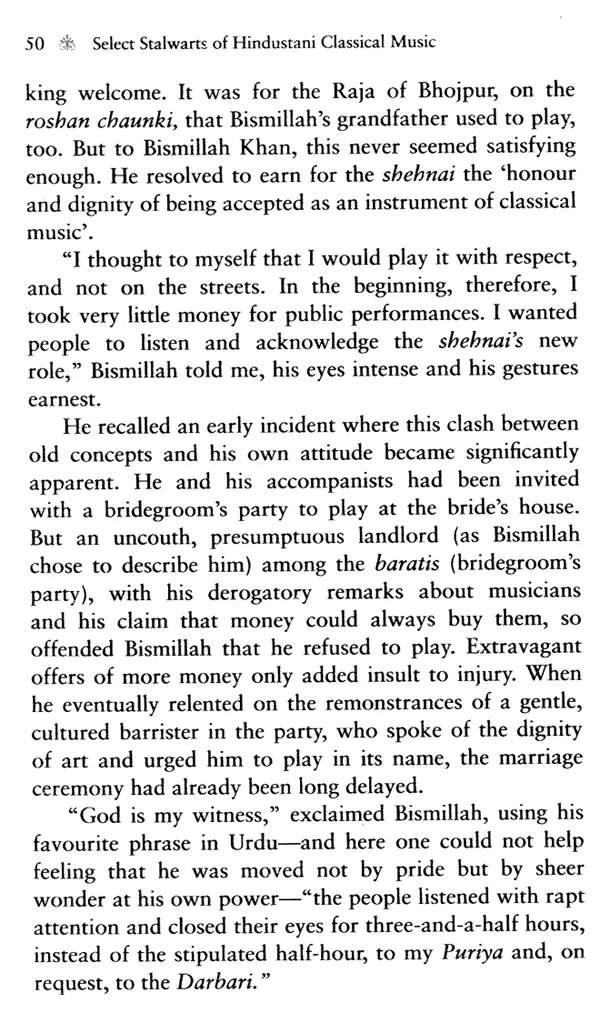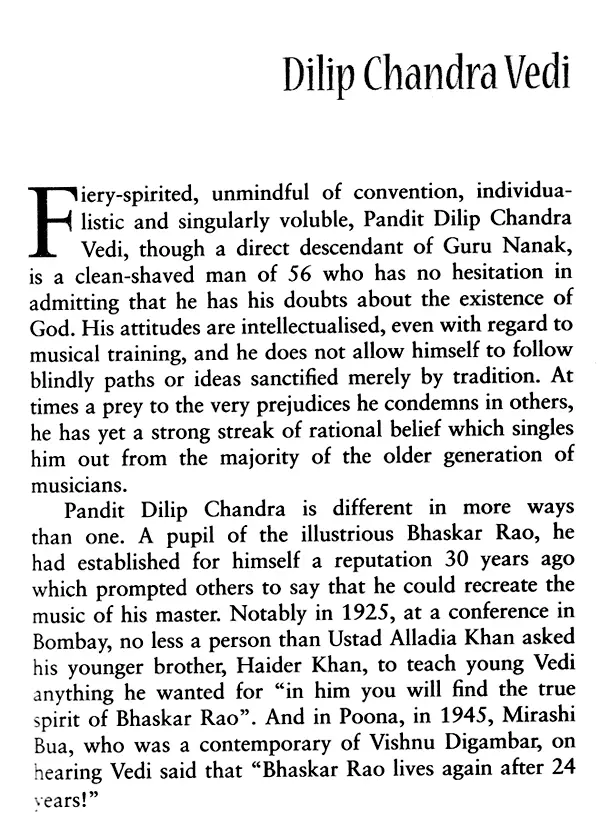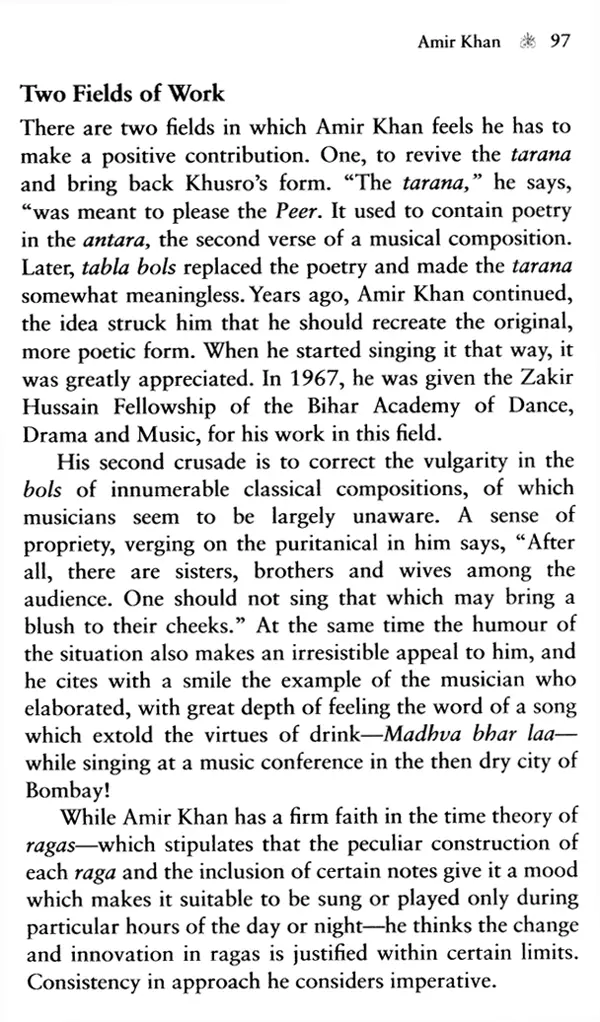
Select Stalwarts of Hindustani Classical Music
Book Specification
| Item Code: | UAX198 |
| Author: | Uma Vasudev |
| Publisher: | National Book Trust, India |
| Language: | English |
| Edition: | 2015 |
| ISBN: | 9788123777771 |
| Pages: | 149 |
| Cover: | PAPERBACK |
| Other Details | 8.50 X 5.50 inch |
| Weight | 230 gm |
Book Description
The book consists of short but rare biographical portraits of 16 famous classical musicians of India who played not only a significant but a resurgent role in popularising Indian music. This began first with a newly curious, culture sensitive Indian listener then increasingly all across the world. The present profiles are based on personal interviews taken by the author and most of these were published in The Illustrated Weekly of India, a Times of India publication, in the late nineteen fifties.
Uma Vasudev is a popular Indian critic, journalist and novelist, and a well renowned columnist on political and cultural issues. She was the Editor of India Quarterly, the journal of the Indian Council of World Affairs and the Editor of India Today, as well as of her own magazine, Surge International. She is known for her distinctive style and approach, and has written several books, made documentaries, and directed television serials.
It was the age of the resurgence of Indian art consciousness. The fifties in independent India, free of a foreign yolk, revelling in its traditions, finding roots back in time. It was also, particularly, the age of the resurgence of Indian classical music-and to be aware, as William Wordsworth wrote about the time of the French revolution:
Bliss it was in that dawn to be alive
But to be young was very heaven
Ours, however, was not the celebration of the death of an old order, as it was politically for the French, but a celebration after India became free, of an exciting, old heritage of the arts which began to unfold in its myriad forms.
Of this, classical music was of the dominant order. Lahore, known before the partition of India as the Paris of the East, was home to the classical arts, even to having the very first Gandharva Mahavidyalaya, set up in 1931 for the promotion of classical music and dance. It lost its position post-partition to Bombay (now Mumbai), Calcutta (Kolkata) and now Dilli (New Delhi), as the epicentre of the classical arts. This was primarily because Delhi also became home to the three Akademies of Art, Literature, Music and Dance set up by an arts conscious political leadership.
**Contents and Sample Pages**
